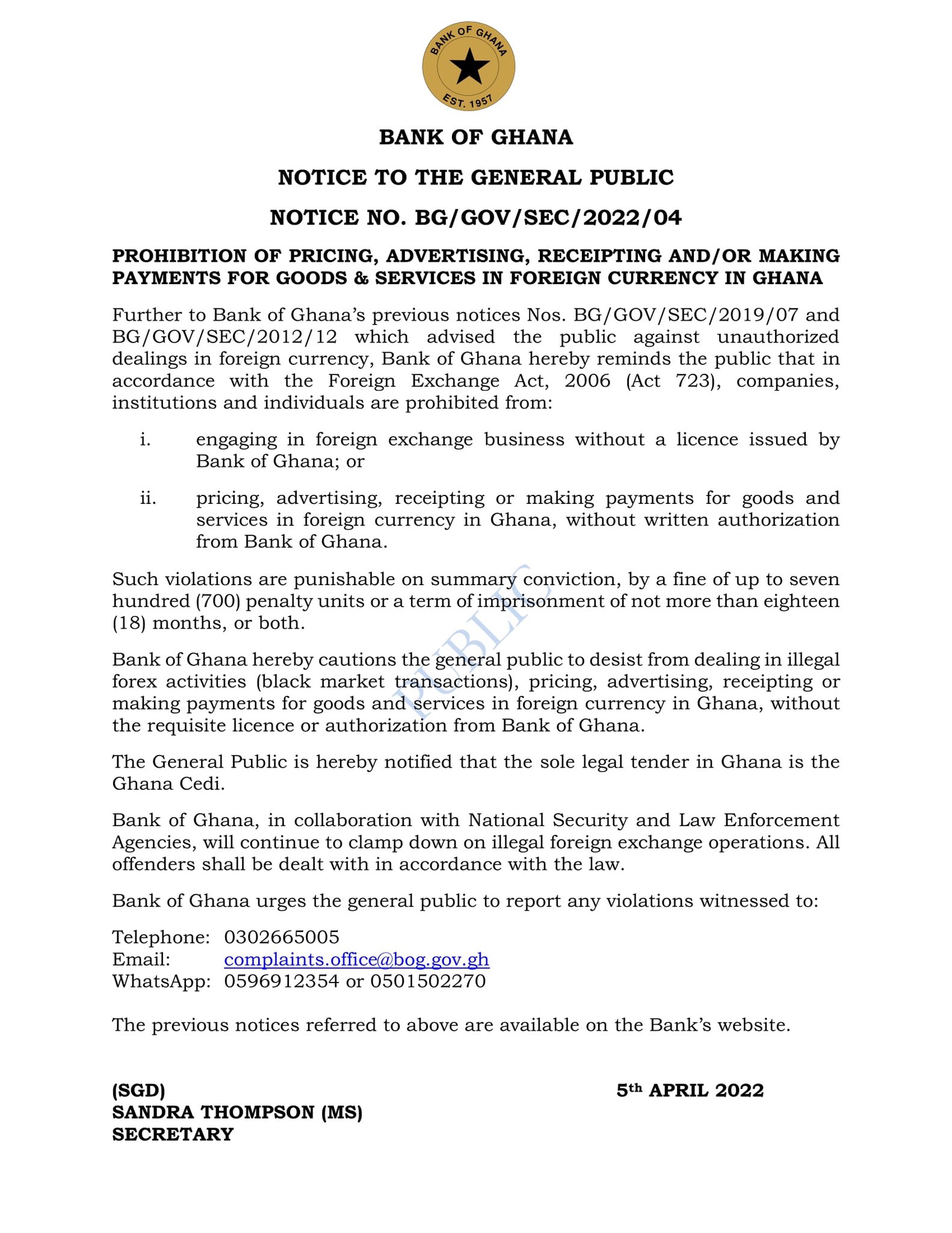The Bank of Ghana prohibits the unauthorised use of foreign currencies for transactions
The Bank of Ghana (BOG) has issued a reminder warning citizens, and companies to stop transacting business, pricing goods and services and advertising in foreign currencies.

The Bank of Ghana (BOG) has issued a reminder warning citizens, and companies to stop transacting business, pricing goods and services and advertising in foreign currencies.
Although the Foreign Exchange Act, 2006 (Act 723) prohibited the pricing and payment in currencies other than the local currency, some institutions, companies, and individuals still go ahead with foreign exchange trade without authorisation from the bank.
BOG said it is illegal for individuals, companies, institutions, and others to engage in foreign exchange business without an appropriate licence from the regulator. It's important to note that the Bank have previously issued this notification, however, as the Cedi continues to decline its important to reiterate the caution.
“Engaging in foreign exchange business without a licence issued by Bank of Ghana; or pricing, advertising, receiving or making payments for goods and services in foreign currency in Ghana, without written authorisation from Bank of Ghana [is a] violation,” the Bank said on Thursday.
“Such violations are punishable on summary conviction by a fine of up to seven hundred (700) penalty units or a term of imprisonment of not more than eighteen months(18) or both.”
It also frowned at “black markets”, stating that “the Public is hereby notified that the sole legal tender in Ghana is the Ghana Cedi. The Bank of Ghana, in collaboration with the National Security and Law Enforcement Agencies, will clamp down on illegal foreign exchange operations. All offenders shall be dealt with in accordance with the law,” considering that the transactions have led to the depreciation of the Ghana Cedi.

Savaging the woes of the Ghana Cedi
Ghanaian Cedis dropped by 8.86% to the dollar between January 1, 2022, and February 25, 2022, presently trading at ¢6.60 to one US dollar on the forex market.
Analysts have blamed the low performance of the currency on fiscal slippages, rising debts and inadequate revenue, leading to selling pressures by investors in Ghana’s international bonds and reduced access to the international capital markets.
Ghana’s reliance on exporting raw materials and importing finished products contributed to the country’s persistent demand for, and less supply of, foreign currencies. This is why, for a long time, Ghana’s cedi has been depreciating against the other major trading currencies.
Last month, the government announced a 30% salary cut for its appointees to mitigate economic hardship. Additionally, Ghana’s President, Nana Akufo-Addo said the government will pump $2 billion into the economy to help stabilise the cedi (Ghana’s currency) which has been falling in value to the dollar and other international currencies of trade for the past few months.
As of 28th February 2022, the Ghanaian cedi was the worst performing currency among 15 top currencies in Africa, depreciating by 7.6% within the first two months of 2022, the Conversation reported. Adding that “the first reason for the recent depreciation is the increased demand for foreign currencies since most businesses in Ghana are now recovering from the COVID-19 shock.”
Featured image: Ernest Addison, Governor of the Bank of Ghana






